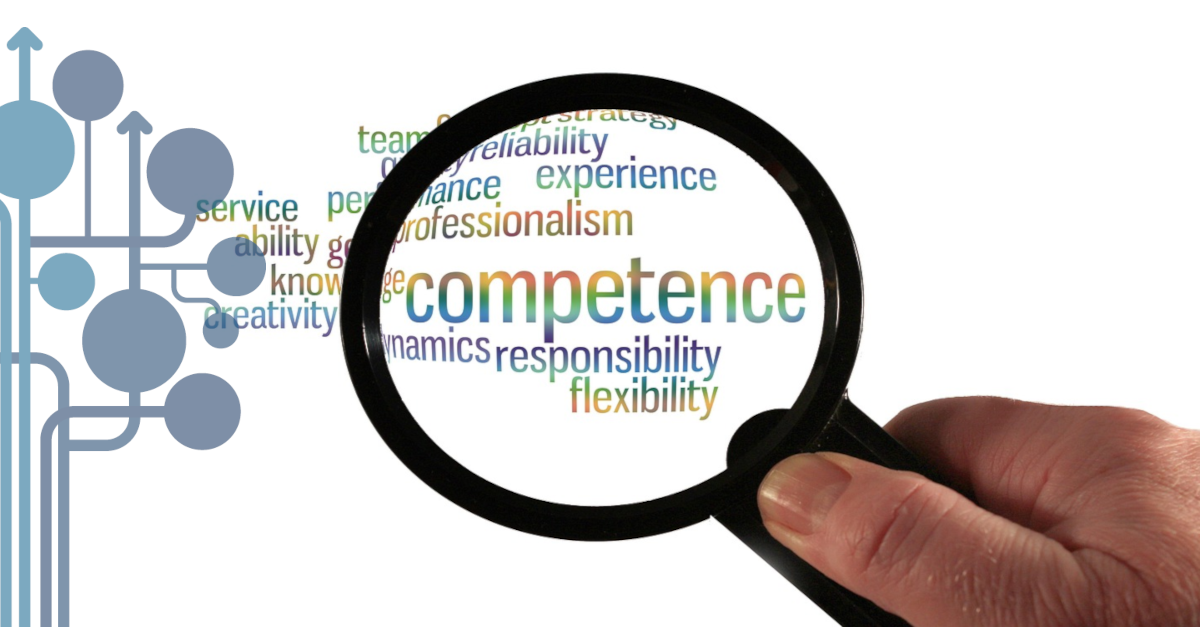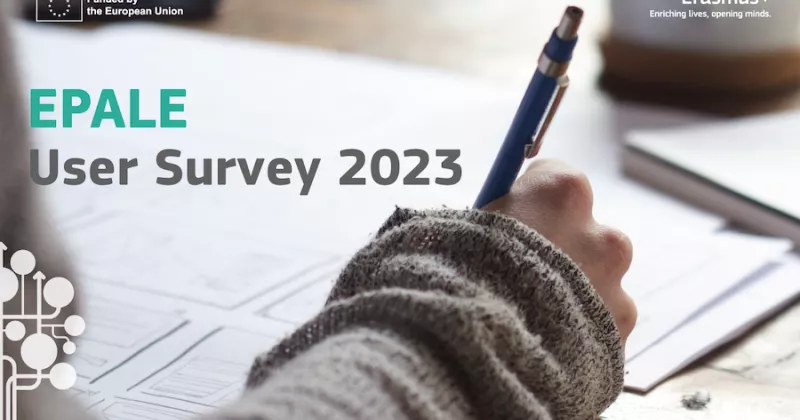A testbed for developing civic skills
4 min read – like, share, comment!
First published in Polish by Dorota Gierszewski
In the Active Residents' Academy (AAM) project in Krakow, empowerment is promoted and social and civic competencies are mastered.
Competence, what is it actually?
The term ‘competence’ is widely used. But do we understand it? Some seem to know what it means, but few can explain it straightforwardly. A simple formula to remember what it is is the following:
Skills + knowledge + attitudes = competence
Competence is a set of qualities and practical skills that enable and enhance the effectiveness of actions. In several cases, competence leads to success. It helps to complete tasks and combine knowledge with skills. Competence is always value-based.

Photo: Gerd Altmann, Pixabay
Key competencies
Among the many competencies, eight key ones stand out [1]. It is worth paying attention to:
- improving the mastery of basic skills (understanding and producing information, mathematical reasoning and basic digital literacy) and supporting the development of learning-to-learn competencies as an ever-improving foundation for lifelong learning and participation in society;
- improving personal, social and learning-to-learn competencies to enhance health-oriented and future-oriented life management;
- promoting the acquisition of competencies in science, technology, engineering and mathematics (STEM), taking into account their links with the arts, creativity and innovation, and encouraging young people, in particular girls and young women, to choose careers in STEM fields;
- promoting and raising the level of digital literacy at all levels of education and training and among all population groups;
- fostering entrepreneurship, creativity and initiative;
- improving language competencies and helping learners to learn different languages which are relevant to their professional and personal situation or which may facilitate cross-border communication and mobility;
- supporting the development of civic competencies to foster an understanding of shared values as referred to in Article 2 of the EU Treaty and in the Charter of Fundamental Rights;
- Raising awareness among all learners and educators of the importance of acquiring key competencies and their relevance to society.
Recognising civic competence as one of the eight essential competencies is an important indication of its high relevance. It is worth recognising the importance of these competencies in people's lives in different areas of activity.
Active Residents' Academy as a test bed for developing civic competencies
The Active Residents' Academy is a series of lectures and workshops for Krakow adults who want to support the local community actively. It is the brainchild of the Participation and Dialogue Unit of the Social Policy and Health Department of the Krakow City Hall. The third edition of the project, which lasts several months at a time, is currently underway.
The Academy aims to impart knowledge, skills, and attitudes, enabling adults to act confidently in an ever-changing reality. It contributes to social and civic awareness and self-identity building. It aims to help individuals become part of society by developing their civic agency, a society where they can exercise their rights and fulfil their responsibilities. Civic participation is essential for sustaining democracy.
The Active Resident Academy is about developing and practising the beliefs and behaviours necessary for civic participation. It is designed to promote empowerment, the ability to build relationships, communicate effectively with partners, invent new ways of solving problems, and navigate effectively in an increasingly digital world.
A practical method of acquiring citizenship skills in the Academy is through practical experience (everyday social experience), working, educating, socialising and taking action in specific situations. Such experiences may include, for example, learning how to resolve conflicts in a non-violent way, make one's judgements, and defend human rights and freedoms. Situational, trial-and-error learning and imitation of socially competent models are important in such practices. Forms of work include research walks, study visits, and facilitation, i.e. group development of new creative solutions by pooling the knowledge and skills of many people. It is worth remembering that people who engage in diverse activities transform their local environment and themselves. Above all, responsible engagement requires openness to knowledge.
Summary
Civic competencies will become increasingly important as key competencies in the future. A high level of civic competencies helps to build understanding across divides and to create an atmosphere of cooperation, trust and openness. There can be no development of civil society structures and local democracy without equipping citizens with social and civic competencies. It is, therefore, worth developing them through non-formal education, as in the case of the Active Residents Academy project described above. Local authorities and NGOs are already involved in the development of these skills. This is because civic education forms an essential part of adult lifelong learning.
dr hab. Dorota Gierszewski – university lecturer, researcher, trainer, community organiser, andragogist. She works at Jagiellonian University as Head of the Social Pedagogy and Andragogy Unit. Interested in informal adult education, citizenship, migration, and interculturalism issues. She carries out research and educational projects in the context of adult social activation. She cooperates with non-governmental organisations supporting lifelong learning, shaping pro-social and civic attitudes, and national and ethnic minorities.
Further reading:
Bibliography:
[1] Zalecenia Rady z dnia 22.05.2018 r. w sprawie kompetencji kluczowych w procesie uczenia się przez całe życie, https://eur-lex.europa.eu/legal-content/PL/TXT/PDF/?uri=CELEX:32018H0604(01)&from=en
Kumment
Wszedłem na stronę projektu,…
Wszedłem na stronę projektu, żeby dowiedzieć się więcej, ale niektórych informacji tam nie zawarto, stąd moje pytania. Jaki jest koszt uczestnictwa w programie? Czy edukacja kończy się jakimś sprawdzianem wiedzy bądź umiejętności? I wreszcie (z innej beczki) - dlaczego metaforą przestrzeni rozwijania kompetencji jest zdecydowanie kojarzący się z walką poligon?
Projekt
Cieszę się, że zainteresował Cię tekst. Uczestnictwo w projekcie jest nieodpłatne, dodatkowe szczegóły na ten temat znajdują się w regulaminie na stronie. Wykazać się zdobytą wiedzą będzie można poprzez przygotowanie planu działania w swoim sąsiedztwie przy pomocy narzędzi partycypacyjnych lub przygotowanie projektu wydarzenia aktywizującego osoby z sąsiedztwa. A w przyszłości absolwenci/-tki AAM z dyplomem mogą kontynuować współpracę z Urzędem Miasta Krakowa jako Ambasador Lokalnej Partycypacji. W odniesieniu do tytułu użyty termin poligon oznacza miejsce, w którym dokonuje się prób i eksperymentów, ponieważ tak działamy w Akademii, wykorzystując learning by doing.
poligon...
Ciekawe pytanie o ten poligon... i trafna odpowiedź, ale ja pomyślałem jeszcze o innym porównaniu. Poligon kojarzy się z walką, a Akademia Aktywnego Mieszkańca to nieustanne wychodzenie ze strefy komfortu (czyli w pewnym sensie walka z samym sobą). To wychodzenie ze strefy komfortu ma miejsce na pewno w dwóch wymiarach. 1) w swoim codziennym zabieganiu uczestnicy muszą wygospodarować 2h w każdą środę, 2) przyswajanie nowych wiadomości często wymaga zmiany postaw... a już na pewno jest to niezbędne w kontekście partycypacji społecznej :)
Zatem poligon, o którym pisze Dorota to również prawdziwa walka :)




cykle edukacyjne
W działaniach organizacji, których jestem członkiem czy pracownikiem często posługujemy się cyklami edukacyjnymi, która poza nabyciem kompetencji mocno wzmacniają więzi i relacje pomiędzy uczestnikami. Często te nowe znajomości przekładają się na wspólne działania animacyjne i obywatelskie. Realizowaliśmy m.in. Szkołę Animatorów Społecznych czy też Akademię Rozwoju Lokalnego, dające kompetencje do działań w środowisku lokalnym. Zainteresowanym polecam stronę https://www.forumanimatorow.org/#oferta